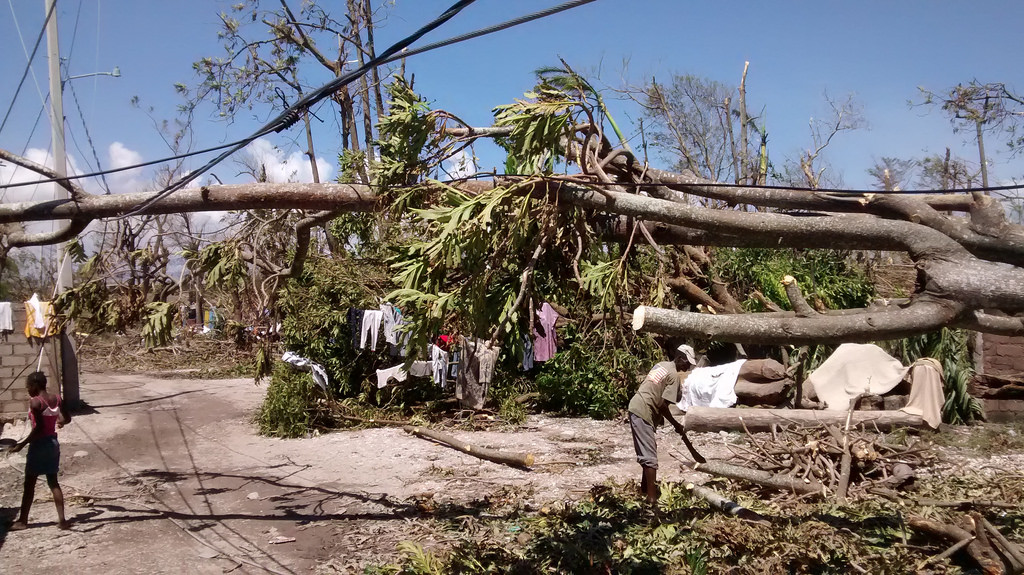Haiti Anticipates Disease Outbreak After Hurricane Matthew

By:
Hurricane Matthew has passed over Haiti, leaving the country's agriculture, irrigation, and infrastructure devastated by floods. And these conditions may intensify Haiti's ongoing cholera outbreak, the New Scientist reported.
Thirteen people in Haiti have died of cholera since the storm hit, CNN reported.
 Julien Mulliez/DFID - flickr.com
Julien Mulliez/DFID - flickr.com
Flooding from Hurricane Matthew is expected to spread sewage carrying the cholera bacteria, the New Scientist reported.
Flooding has already ravaged farmland and caused food shortages, particularly in Haiti's southern peninsula.
"Right now our biggest concern is cholera, a deadly and highly infectious disease," Unni Krishnan, the director of Save the Children's Emergency Health Unit in Haiti, said in a Monday press release. "The number of cases is increasing with every new report. Flooding and contaminated water caused by the storm pose a huge threat to survivors, including thousands of children. Clean water and medicine delivered to the hardest hit areas in the next 24 to 48 hours is a key priority."
The cholera threat is heightened because the hurricane has forced thousands of Haitians out of their homes, with nowhere to sleep but the streets, CNN reported.
"Based on the rainfall predictions and how slow this storm is moving, we fear that Matthew will bring a tsunami of cholera cases unseen since post-earthquake days," Bill Horan, the president of humanitarian nonprofit organization Operation Blessing International, told the Weather Channel.
The flooding also swept away roads and bridges, making it more difficult for those afflicted with cholera to seek treatment.
"I am expecting that this hurricane will increase cholera rates and also cholera death rates if the floods cut off access to treatment facilities," Johns Hopkins University international health and epidemiology professor David Sack told the New Scientist. "A patient with severe cholera needs treatment within just a few hours."
Haiti's cholera outbreak dates back to 2010, when United Nations peacekeepers brought aid to the region after a massive earthquake, NPR reported.
Since then, more than 10,000 Haitians have died of cholera. More than 27,000 suspected cases have been reported this year alone, according to CNN.
It was initially theorized that U.N. peacekeepers brought the disease into the region, which experts confirmed, according to NPR. But it wasn't until August of this year that the United Nations acknowledged it played a role in the epidemic, The New York Times reported.
